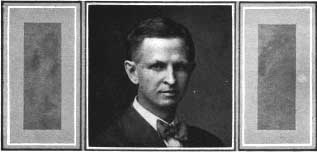An Authentic History of Westfield, Massachusetts
Lewis M. Dewey
Copyrighted, 1902 and 1919
Westfield, the Queen of the Woronoco Valley, one of the historic towns of New England, settles only a few years after the institution of the Colony of Massachusetts Bay at Boston in 1630, lies 108 miles west of "The Hub of the Universe," from which fact it was given its name. It remained a frontier town for over sixty years and was the military base for expeditions to the west and north. A garrison of thirty troopers of the old-time formation was stationed here. The town suffered during th perilous times of the Indian wars by having some people killed and buildings burned. Game of all kinds was so plentiful that the aborigines called the place Wau-wau-nock-oo, which means "it is fat hunting."
The rich meadow lands and uplands covered with primeval forests made the place, from the start, one of the most prosperous in the colony and it became a town soon after its settlement. Natural mill sites were at once utilized for the manufacture of lumber and flour, also some iron ore was discovered.
Unlike most settlements made in one village, Westfield had three; one on the Fort side, now Main street , had a meeting house and became the seat of the government and business and remained such until after 1800. When the third meeting house was erected on "the Green" in 1805, civilized activities soon gathered around the square. The opening of the Western Railroad (now the Boston and Albany) in 1841 made Elm street the main thoroughfare and left old Main street on the side.
The standard of education has been high since Westfield Academy was opened in 1800 and began sending graduates all over the world. The second normal school opened in American in 1839, was moved here five years later and had had an elevating influence upon the town ever since.
The opening of the canal to New Haven in 1830 gave the town access to the markets of the world and manufacturing in various lines began to flourish.
Westfield has always been democratic in spirit and patriotic in action , having furnished troops and supplied for every national and world-wide crisis, and her sons have died on every important battle field in the nation's history. The fighting 26th Yankee Division of world-wide fame was organized here in August and September, 1917.
This is a convenient shipping point in all directions, being a junction of the Boston and Albany and the New York, New Haven and Hartford railroads; 108 miles from Boston, and 120 miles from New York. Rapid trolley service takes the traveler to the suburbs and surrounding places contributory to our well-being.
Many literary, social, fraternal, and religious organizations, well-paved streets, and shaded walks tend to make the "Whip City" and "Pure Food Town" the "Garden Spot of the Lord."
Many generations ago, where you now sit, circled with all that exalts and embellishes civilized life, the rank thistle nodded in the wind, and the wild fox dug his hole unscared. Here lived and loved another race of beings. Beneath the same sun that rolls over your heads, the Indian hunter pursued the panting deer; gazing on the same moon that smiles for you, the Indian lover wooed his dusky mate.
Here the wigwam blaze beamed on the tender and helpless, the council fire glared on the wise and daring. Now they dipped their noble limbs in your sedgy lakes, and now they paddled the light canoe along your rocky shores. Here they warred; the echoing whoop, the bloody grapple, the defying death-song, all were here; and when the tiger strife was over, here curled the smoke of peace.
Here, too, they worshipped; and from many a dark bosom went up a pure prayer to the Great Spirit. He had not written his laws for them on tables of stone, but he had traced them on the tables of their hearts. The poor child of nature knew not the God of revelation, but the God of the universe he acknowledged in everything around.
He beheld him in the star that sunk in beauty behind his lonely dwelling; in the sacred orb that flamed him on from his midday throne; in the flower that swayed in the morning breeze; in the lofty pine, that defied a thousand whirlwinds; in the timid warbler, that never left its native grove; in the fearless eagle, whose untired pinion was wet in clouds; in the worm that crawled at his feet; and in his own matchless form, glowing with a spark of that light to whose mysterious source he bent, in humble, though blind adoration.
And all this has passed away. Across the ocean came a pilgrim bark, bearing the seeds of life and death. The former were sown for you; the latter sprang up in the path of the simple native. Two hundred years have changed the character of the great continent, and blotted forever from its face a whole peculiar people. Art has usurped the bowers of nature, and the children of education have been too powerful for the tribes of the ignorant.
|
